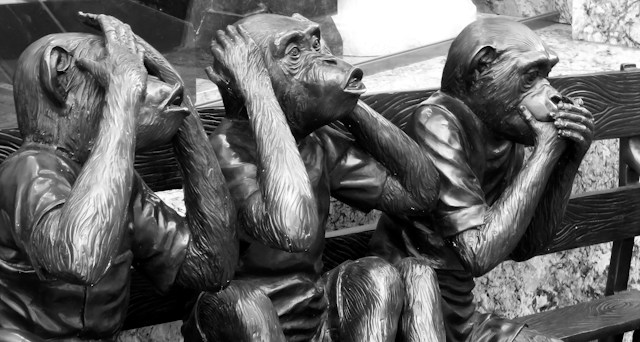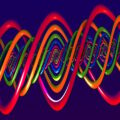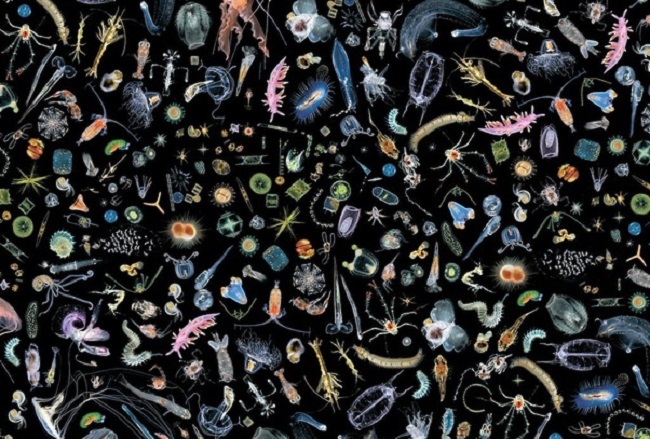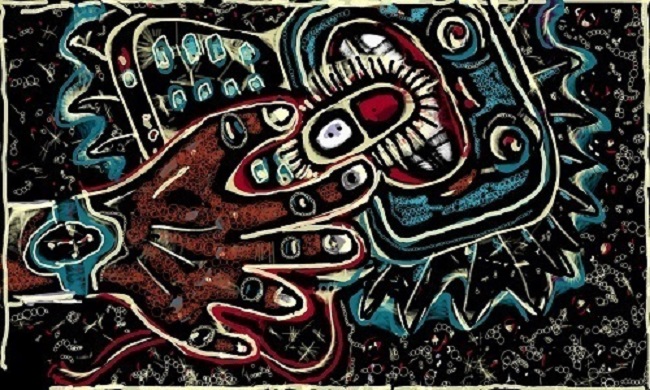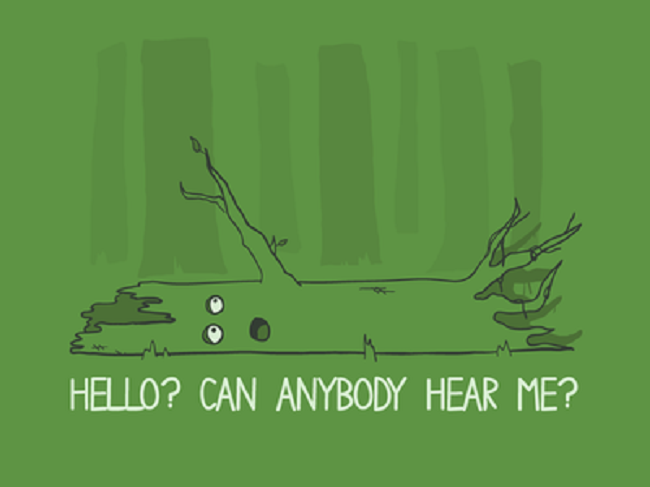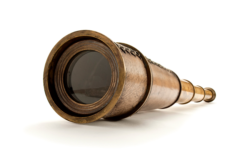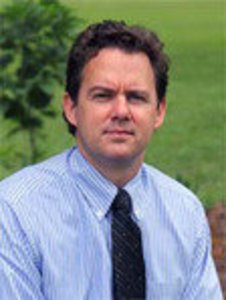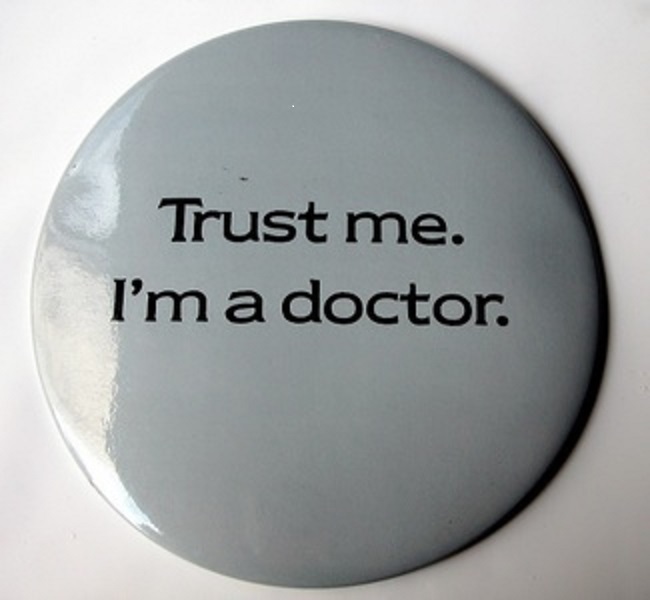Sloshing around in my brain over the last several months has been the notion that science, especially medical science as it is currently contrived, is suffering from a great crisis of responsibility. We see the lack of responsibility over and over again in the all-too-frequent, multi-billion dollar settlements and fines against pharmaceutical and medical device manufacturers. Neither the injury settlements nor the fines admit culpability; not from the scientists who developed the drug, not from the manufacturer, the salesmen, the ad men, or anyone along the production chain. We see no culpability from regulatory agencies who approve and, in many cases, market these medications. Neither the physicians who prescribe these medications nor the insurers who finance their availability are responsible either. No one, it seems, is ever responsible for medication-induced injuries or illnesses; a manifestation of magical thinking that makes the dark ages appear positively rational.
In financial terms, these settlements represent the cost of doing business, no more or less important than any other cost. Since there is no admission or assignment of responsibility, the drug or device in question remains on the market, and the cycle of injury, lawsuit, and settlement, begins anew. If enough time passes, the treatment in question becomes inured into evidence-based medical practices. The side effects are expected but disregarded. In much the same way as the settlements disregard responsibility, the side effects are simply the cost of doing business, an acceptable cost at that.
Bathed in the Safety of the Familiar
Indeed, the more familiar a drug becomes, the less we recognize that it is a medication at all. Think birth control pills, NSAIDs, and even antibiotics, so pervasively used, we often forget these are medications with actual side effects. Our familiarity with these drugs breeds a false sense of safety. We trust all that is known about these drugs, is all that can be known. We assume that after 20, 30, 40 years or more on the market, there would be sufficient time to reveal any risks. We forget, however, that more often not, we never bothered looking.
That is the thing about familiarity, it breeds complacency and a false sense of understanding. As Ignaas Devisch and Stuart Murray write in their brilliant deconstruction of evidence-based medical practice:
“There is something sinister about familiar concepts … The more familiar or ‘natural’ they appear, the less we wonder what they mean; but because they are widespread and well-known, we tend to act as if we know what we mean when we use them.”
With familiarity, it is easy to abdicate responsibility. We are familiar with medications, and therefore, the side effects must be flukes, anomalies, chance events. How can anyone be responsible for a chance event?
They cannot.
And that is the problem.
Somewhere, somehow, we’ve bought into this model of medicine where familiarity equals safety and efficacy, where ill-health comes by chance, and any evidence to the contrary is met with a deeply ingrained and willfully sustained ignorance. We find the roots of this sinister familiarity across all of medicine. We think we know what disease is and is not. We have meticulously defined and categorized hundreds, if not thousands of diseases, (save except the iatrogenic illnesses that we are loathe to recognize). We have defined gold standards by which to assemble the truths about these diseases and determine the best courses of action. We know all there is to know about many of them, and what we don’t know, we often willfully dismiss as unimportant or cleverly attribute to the idiopathy of random chance.
The Rise of Random Events
We see evidence of this everywhere. Take, for example, the certainty propounded by the authors in a recent study published in the esteemed journal Science (below). Cancer is a familiar topic, one that researchers have been studying for decades, and although we have made great strides in increasing awareness about cancer, identifying it early (before it is actually cancer and requires treatment in fact) and even some progress in surviving cancer (though that is debatable), we know almost nothing about preventing it. Our increasing familiarity with this disease process has bred a sinister type of ignorance – one that thinks it knows all that can be known; an ignorance completely unaware of its own limitations. According to the study’s authors, what we don’t know can be chalked up to random chance.
“Some tissue types give rise to human cancers millions of times more often than other tissue types. Although this has been recognized for more than a century, it has never been explained. Here, we show that the lifetime risk of cancers of many different types is strongly correlated (0.81) with the total number of divisions of the normal self-renewing cells maintaining that tissue’s homeostasis. These results suggest that only a third of the variation in cancer risk among tissues is attributable to environmental factors or inherited predispositions. The majority is due to “bad luck,” that is, random mutations arising during DNA replication in normal, noncancerous stem cells. This is important not only for understanding the disease but also for designing strategies to limit the mortality it causes.”
Here, the researchers are so entrenched in the current and very familiar paradigm of cancer research, that any evidence to the contrary can mean only that the nature of this disease process is incomprehensible or random.
To an outsider, some obvious questions arise, along with more than a little indignation and disbelief. Upon reading their work my thoughts:
Really? Cancer is caused by random chance? And the rise in the rate of cancer over the last generations is random chance also? It has nothing to do with the toxic soup we are born from, bathed in, and live within, breathe, and consume? It has nothing to do with medications or vaccines adducting to DNA, limiting DNA repair, and/or totally dismantling mitochondrial structure and functioning? Cancer has nothing to do with the medication and toxicant-induced epigenetic damage or nothing to do with a lifetime of heavily processed, calorie-rich, nutrient-poor, food-like substances? Nothing to do with any of that? Just random chance?
Fealty to the Shrine of Our Hubris
I have to say, attributing cancer to random chance is one of the most stunning combinations of godlike hubris and willful ignorance that I have ever observed. Equating cancer or anything else in medicine to random chance assumes that all appropriate questions have been asked and answered, all of them, every last one of them. It assumes that those asking the questions and the tools employed to find those answers are flawless and hold no biases. It assumes that everything that can be known is already known; that the science is settled in some way, and that all we can do, as mere humans, is to figure out how to mitigate the aftereffects. I don’t know about you, but I think this is an absolute load of crap.
If cancer or any other disease processes are caused by random chance, then we have no responsibility in either the initiation or prevention of disease; no personal responsibility for the lifestyle choices we make, no corporate responsibility for the myriad of common medications that are likely carcinogenic or the environmental chemicals that are known carcinogens. If cancer is mostly random, then we have no impetus to identify and then eliminate the root causes of cancer. The only impetus is to detect early and treat once recognized.
Define cancer as random, define drug side effects as random, define any illness as random, and we summarily abdicate all responsibility for that illness and foreclose the possibility of prevention. Worse yet, we foreclose upon knowledge in favor of a fantastical state of willful ignorance, where no one is responsible for anything.
Absolution: Is That Really What We Want From Our Physicians?
The lack of responsibility and human agency in health and disease absolves us from making difficult choices – smoke, drink, eat garbage – it doesn’t matter. Disease happens randomly. It is beyond our control. We might as well live it up.
Oh, but when it does happen when we are randomly struck by the disease gods, no worries, there are more pills for that, familiar pills, many that have been in use for decades; so familiar that their safety and efficacy are not questioned.
When those pills initiate side effects, even severe ones that cause death, well, because we have abdicated all responsibility, those side effects too must be seen as random and unattributable to any one person, medication, or institution. And this is where our previous trust in the randomness of disease inevitably kicks us in the butt. When side effects happen, when cancer strikes, and especially when these events happen in clusters where obvious associations between a drug or an environmental toxicant and the disease emerge, we want someone to be held accountable.
The problem is when we abdicate responsibility for our own choices when we fall prey to the unquestioning safety of the familiar, and when we buy into the random events theory of disease, there can be no culpability – even from those who are clearly responsible.
Kick and scream as we might, unless everyone assumes at least a modicum of responsibility, no one is truly responsible for anything. Encouraging ignorance and freedom from responsibility – don’t worry, be happy – is a great sales strategy and an even better method to garner political and ideological power, but it doesn’t bode well for health and well-being (or really anything that has to abide by laws of physics). And it is certainly not a model for medicine or medical science.
We Need Your Help
More people than ever are reading Hormones Matter, a testament to the need for independent voices in health and medicine. We are not funded and accept limited advertising. Unlike many health sites, we don’t force you to purchase a subscription. We believe health information should be open to all. If you read Hormones Matter, like it, please help support it. Contribute now.
Yes, I would like to support Hormones Matter.
Photo by Paulette Vautour on Unsplash.
The article was published originally on Hormones Matter on October 7, 2015.
